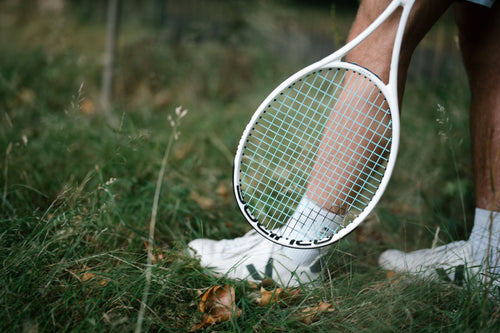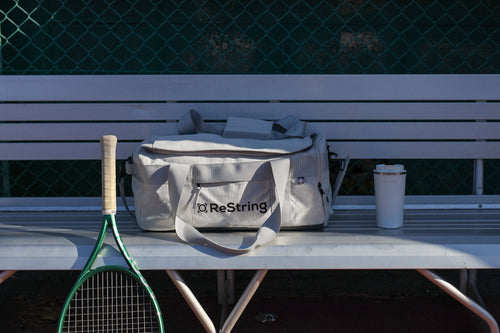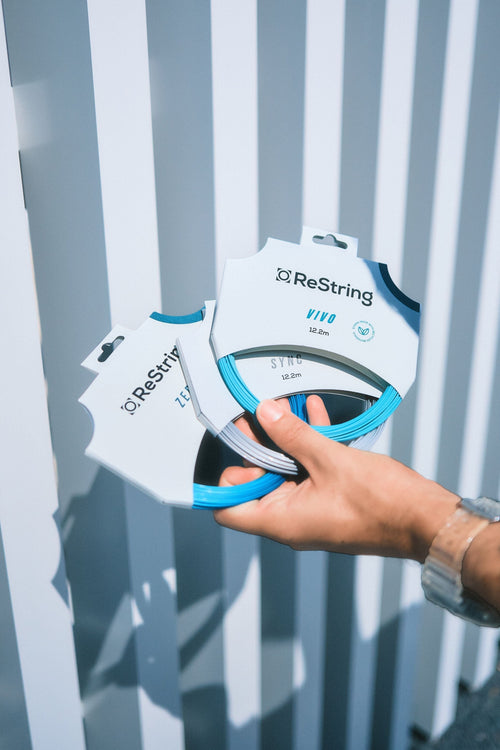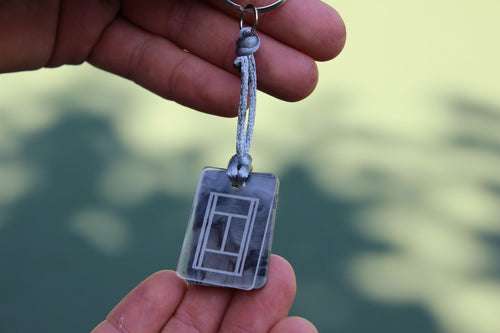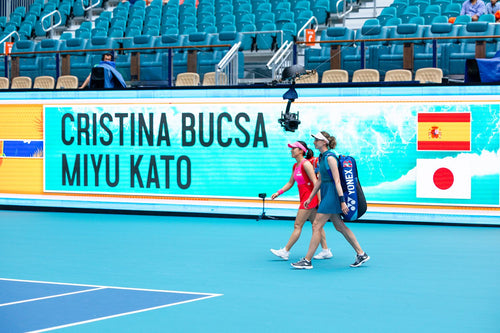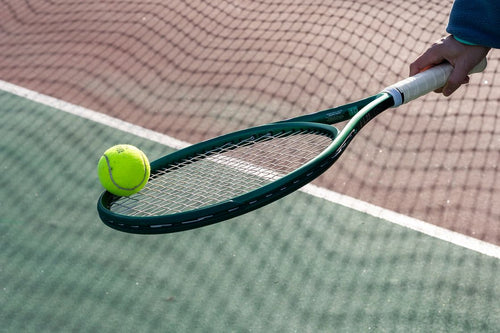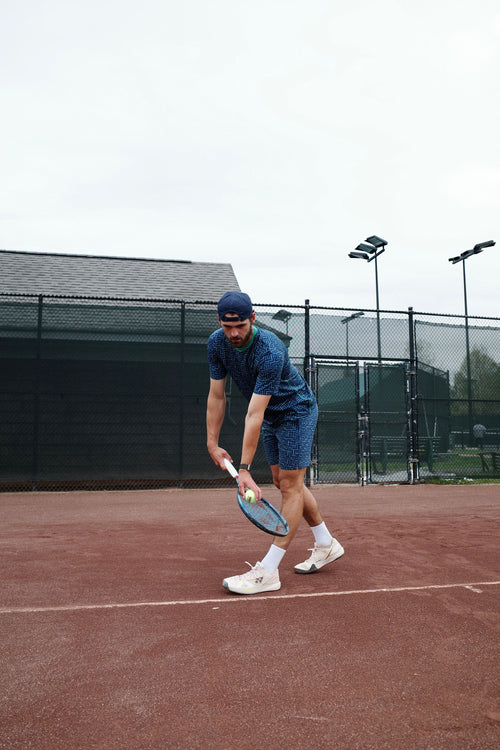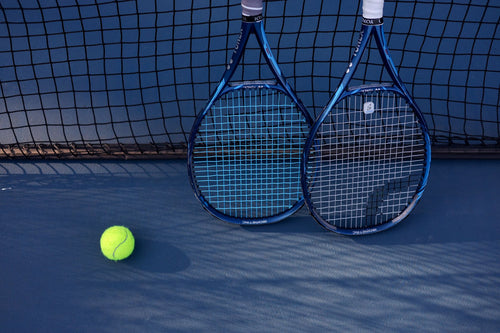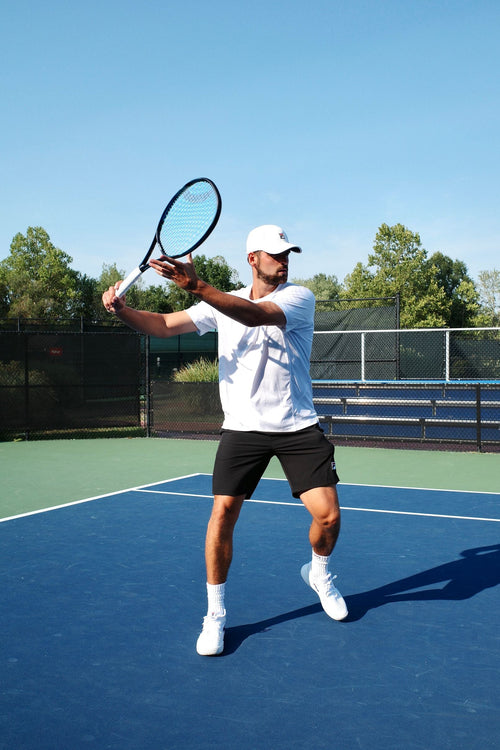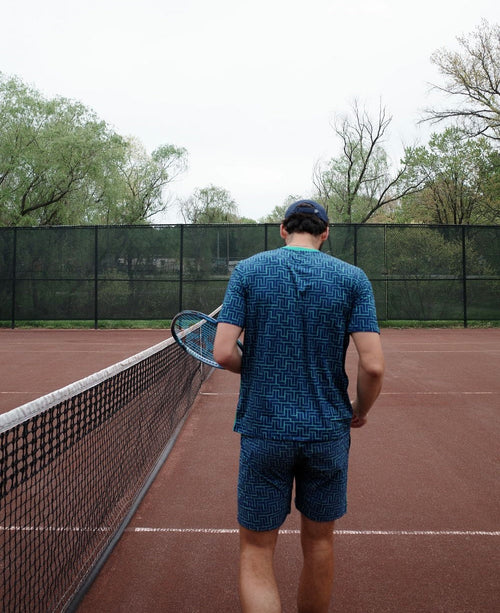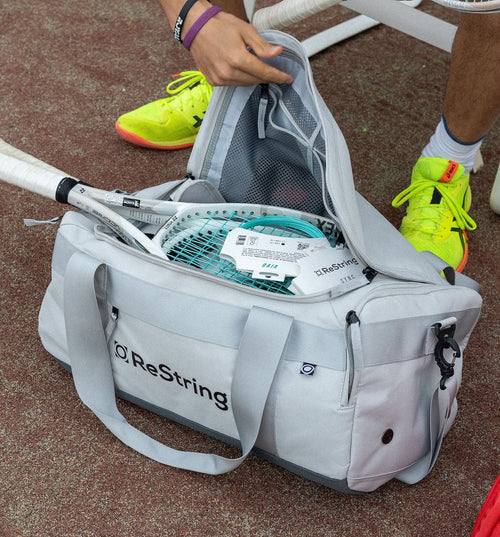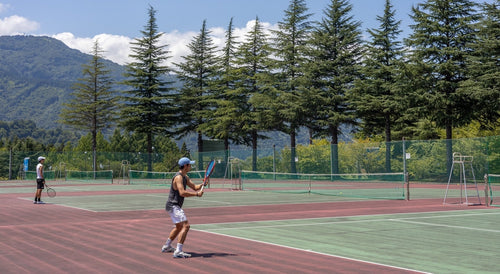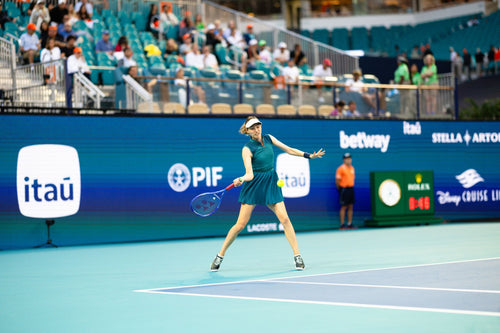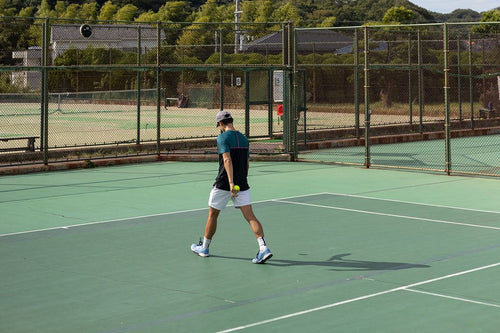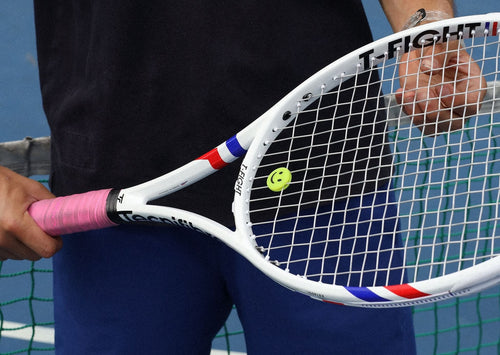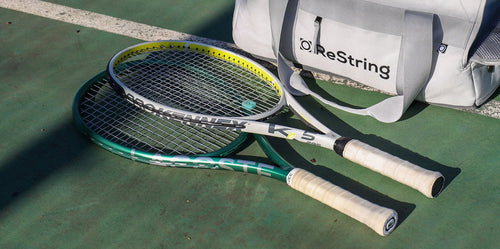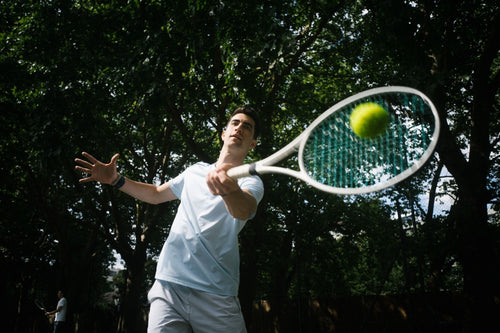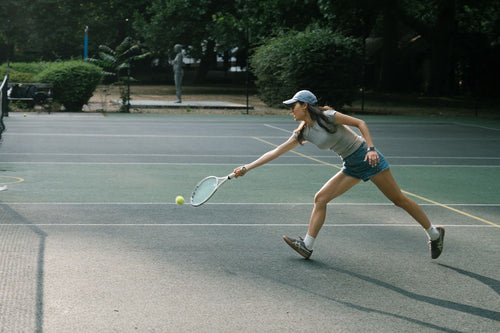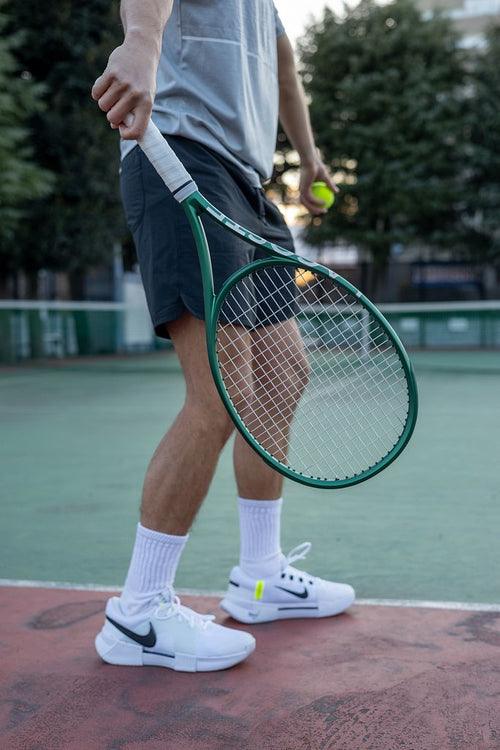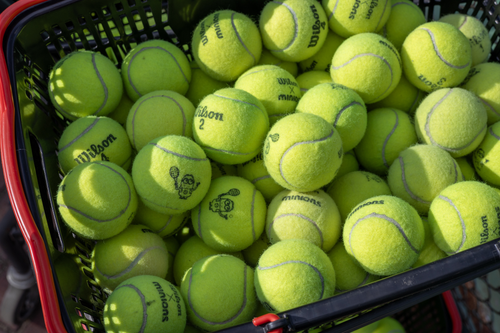Match in the Life of an ATP Pro: Will Woodall
Juan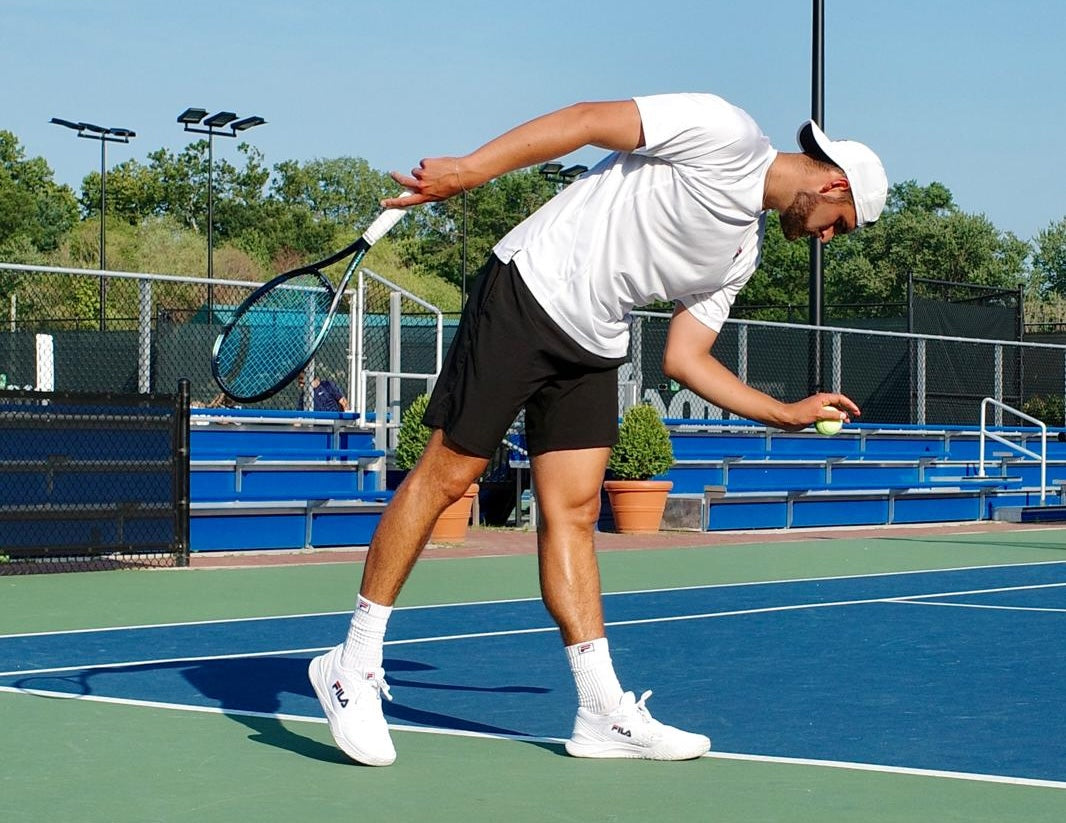
Ranked just inside the world’s top 500, 25-year-old American doubles specialist Will Woodall is ReString’s first pro athlete.
Every match he carries three freshly strung rackets—each with a full bed of Zero.
In this Q&A he walks through the little decisions from string prep to pace control to etiquette, which can turn tour grind into tour wins.
What’s your pre-match routine?
I don’t like to rush my preparation, so I always like to to hit a couple of hours before my match.
That gives me time to go back to the hotel, shower, eat, relax a little bit, and get my mind prepared for the match having already felt the court and the conditions.
Given all that information, I’ll always make sure that the tension is right on my rackets. I always have three fresh rackets, and most importantly, I always have fresh grips on all of them.
That’s probably the most important thing—it needs to feel good in my hand. It needs to feel perfect all the time. And often, if the grip isn’t right, it can affect my level of play.
Obviously, it won’t actually affect my game, but it’s more of a superstition that I always try to take care of, since it’s within my control.
Do you acknowledge opponents in the changing room?
In college, I definitely wasn't as cordial—I was more aggressive, especially when it was a team event. But nowadays, especially on tour, a lot of these guys are people you're practicing with week in and week out.
You're often playing the same teams and the same players. So it doesn't really affect me anymore.
I thought it would, and I’ve been quite surprised to see how many of us get along and respect each other.
We're always trying to be respectful because, at the end of the day, we're all kind of doing the same thing. Yes, we're competitors, but we're also trying to help each other get better—or at least the good guys are.
So yeah, I'm definitely a lot more acknowledging of my opponents in the locker room. I always say, "Hi, how are you?" Even if it's the day of the match, I don’t have an issue with it.
How do you manage timing and pace between points?
I definitely try to take the full 25 seconds that we’re allowed. It's really important for me to reflect on the last point.
I'm not a big fan of rushing. A lot of people play at different paces based on their opponent’s style or where they are mentally. Some players will try to give their opponents less time, especially when they're frustrated, to keep them from resetting.
I totally understand that idea, but I’ve found that it ends up rushing me if I don’t feel prepared. So I’ve stuck to my gut and made sure I take as much time as possible.
I’ve even gotten time violations for that because I just want to be fully prepared for the next point. I don't like the feeling of knowing I could have taken more time and been better prepared. So I definitely take my time between points.
How do you handle bad calls, and when do you bring in the umpire?
It doesn’t happen as much on tour now but if it did, I always have a rule: question the first bad call.
If it happens two or three more times, that's when I escalate by calling for an umpire.
Again, this doesn't usually happen on tour since most matches are officiated. But in the Qualifiers for Futures, singles players make their own line calls. So if I were in that position, I’d call the umpire after the third bad line call.
That’s usually the right time because if you don’t do that, it can easily escalate and things can get out of hand.
When would you call a tournament director?
I’ve never done it during a match, but I have spoken to them afterward. There was one situation where the ref made a really bad judgment call that completely changed the momentum of the match.
I didn’t call the tournament director to the court during the match, but afterward, I spoke to him and made it clear that the decision in that moment wasn’t the right one. I voiced my reasoning.
I think it's important to do that because umpires, tournament directors, and line judges all make mistakes. If nothing is said, then nothing will change.
So I think it’s important to speak up when mistakes happen to try and make them less likely to recur.
What’s the proper protocol for calling a trainer?
Calling a trainer is never really a perfect situation, mainly out of respect for your opponent.
Some players will try to get in your head by calling a trainer right before you're about to serve out a match. That’s been done to me, and it's definitely the worst time to do it, especially if there isn't an actual injury.
You can usually tell when someone is doing it just to upset you. I could never do that. It doesn’t sit right with me. It’s not fair, and I don’t want to win that way. If that’s what I need to win, then I’m not good enough to win.
So, in terms of when to call a trainer, any time except then. Unless you’re truly hurt and need the help. It’s pretty self-explanatory, but there's never really a perfect time.
What are the unwritten rules around bathroom breaks?
Similar to calling a trainer, bathroom breaks can be easily exploited. There have been issues in the past, like with Tsitsipas, taking way longer breaks than allowed.
Some players will push the limits to frustrate their opponent, hoping the ref won’t intervene. That creates tension, and I know players who are capable of doing that.
The unwritten rule is: if you know the rules really well, you can finesse the system.
But I’ve never used the bathroom rule, and I’ve never felt the need to. It’s just not something I would personally do. Like with calling a trainer, it's not in my nature.
What actually gets said at the net after a match?
What players actually say to each other at the net really depends. It depends on whether the match was clean or if there were any bad line calls.
In pro matches, it’s not just about line calls, it’s also how you act. If you're taking bathroom breaks or calling the trainer to mess with someone’s head, that creates tension.
I’ve been in many situations where I’ve been honest about how I felt about my opponent and what I thought of their character. That obviously creates heated arguments and tension. But I fully believe there’s a time and place to speak your mind.
Sometimes, the net isn't ideal, especially if the match is televised, because things might be said that shouldn’t be on live TV. But for the most part, things said at the net are respectful and positive.
Still, everyone loves a bit of tension at the net. It adds some much-needed entertainment.
Conclusion
What can you learn from a match in the life of an ATP pro?
Copy the controllables. Give yourself a 25-second mental reset between points, keep superstitions (grips, routines) that calm you, and trust a string that holds true.
Will’s choice—Zero—pairs power and spin with incredible tension maintenance, so the feel he grooves at warm-up stays locked in when the handshake comes.
Have fun, learn from the best and hopefully one day we can hear about your match routine on the ATP tour.

